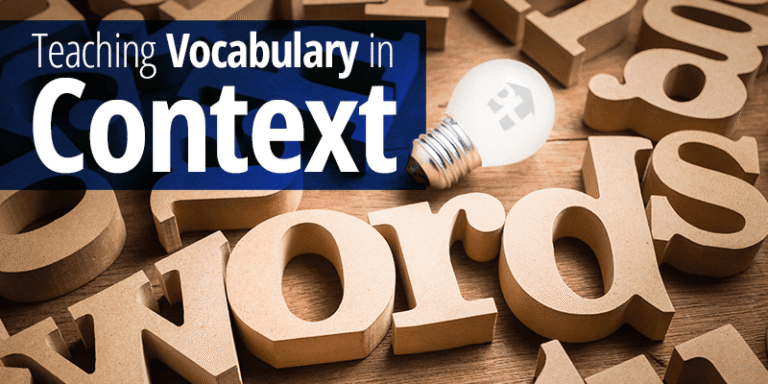Building Vocabulary Through Contextual Learning K-12

Trainer: Engy Hammam
Duration: 15 Hours
Objectives
By the end of this course, participants will be able to:
1. Understand the principles and benefits of contextual vocabulary instruction over
rote memorization.
2. Identify and apply effective strategies to teach vocabulary in context across
grade levels.
3. Integrate vocabulary learning into reading, writing, speaking, and listening tasks.
4. Design and implement lessons that foster word consciousness and deeper word
knowledge.
5. Utilize authentic texts and real-world contexts to enhance vocabulary acquisition.
6. Differentiate vocabulary instruction to meet the needs of diverse learners.
7. Assess vocabulary knowledge formatively and summatively in meaningful ways.
Outline
Module 1: Foundations of Vocabulary Development
• Importance of vocabulary in literacy and academic achievement
• Receptive vs. productive vocabulary
• Tiers of vocabulary
• Challenges of traditional vocabulary instruction
• Principles of effective vocabulary learning
Module 2: The Power of Contextual Learning
• Definition and rationale of contextual learning
• Incidental vs. intentional vocabulary learning
• How students learn words from context
• Role of rich oral and written language environments
Module 3: Strategies for Teaching Vocabulary in Context
• Context clue strategies (definition, synonym, antonym, inference, example)
• Using read-alouds, shared reading, and close reading to teach vocabulary
• Word-learning strategies (morphology: roots, prefixes, suffixes)
• Word webs, semantic maps, and concept sorts
• Word walls with contextual usage
• Teaching academic vocabulary through content integration
Module 4: Embedding Vocabulary in the Four Language Domains
• Vocabulary in reading: pre-teaching and frontloading
• Vocabulary in writing: student-generated use of new words
• Vocabulary in speaking and listening: classroom discussions, oral presentations
• Interactive activities to practice new vocabulary
Module 5: Differentiation and Support for Diverse Learners
• Scaffolding vocabulary instruction for ELLs and struggling readers
• Culturally responsive word selection
• Using visuals, gestures, and multilingual supports
• Tiered activities and flexible grouping
Module 6: Vocabulary Assessment and Word Consciousness
• Formative vs. summative assessments for vocabulary
• Depth vs. breadth of word knowledge
• Student self-assessment tools
• Promoting word curiosity and lifelong vocabulary growth
Module 7: Lesson Design and Action Planning
• Backward planning with vocabulary outcomes
• Building a contextual vocabulary-rich unit
• Collaboration and peer feedback
• Reflection and implementation planning
